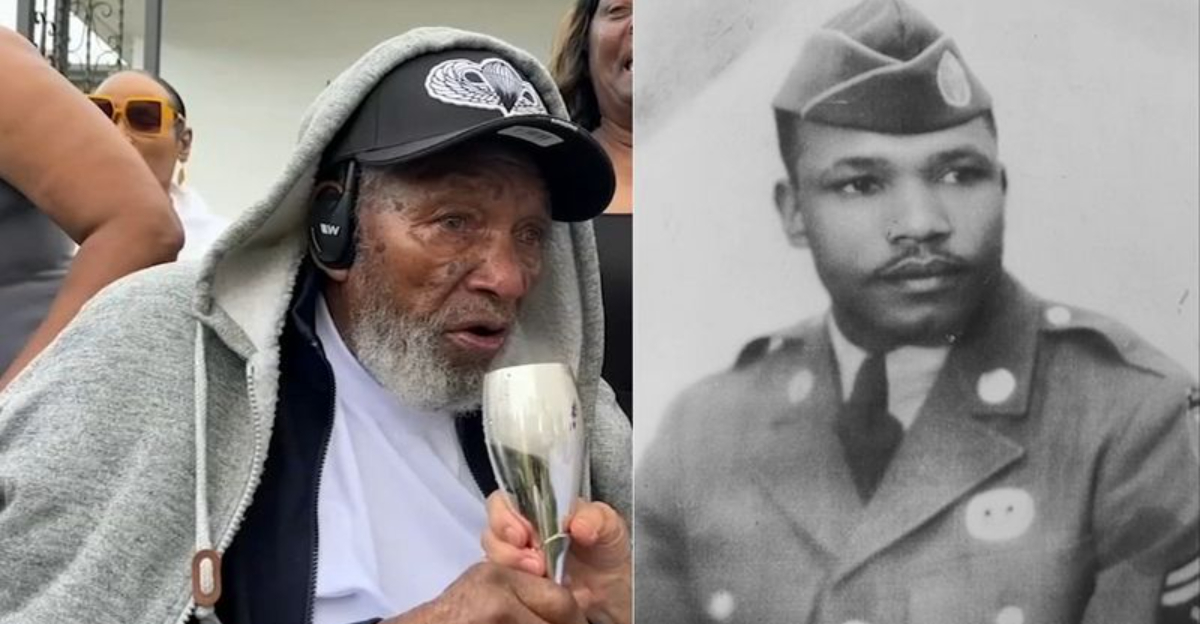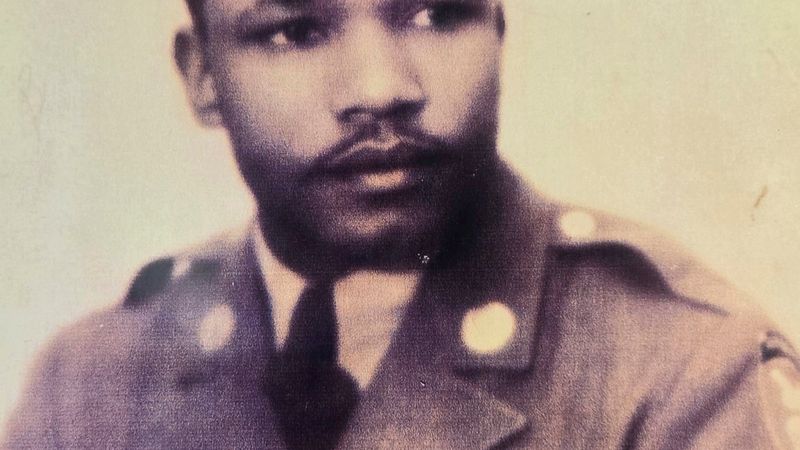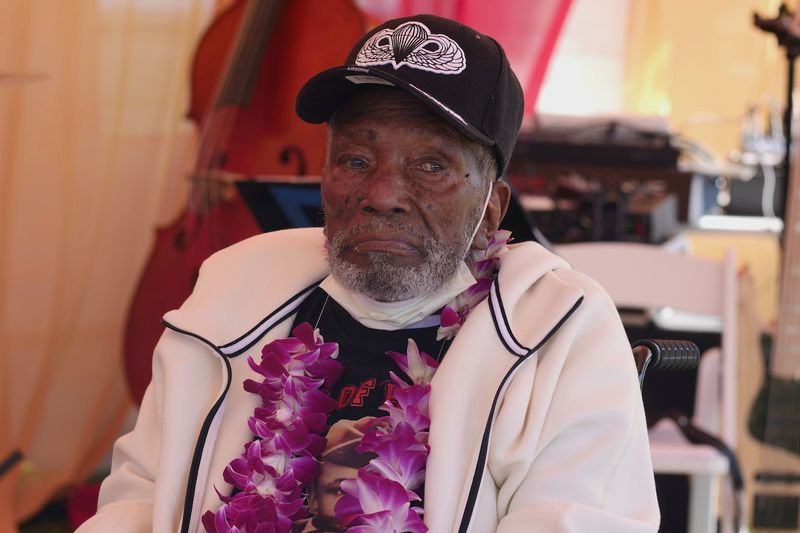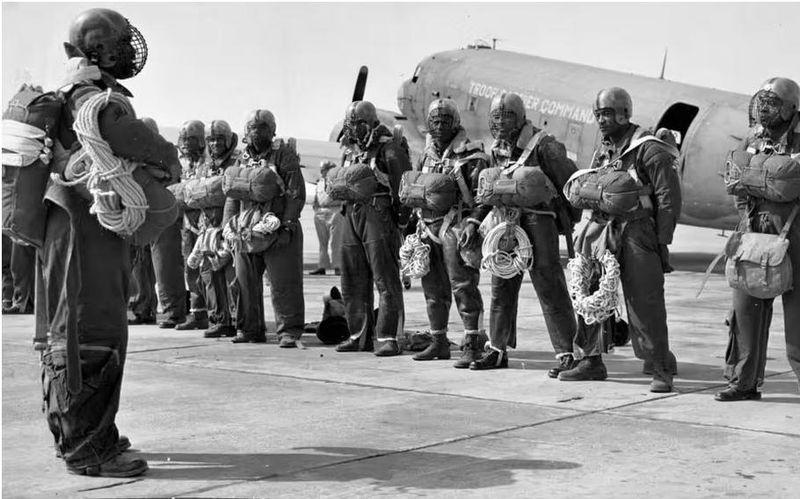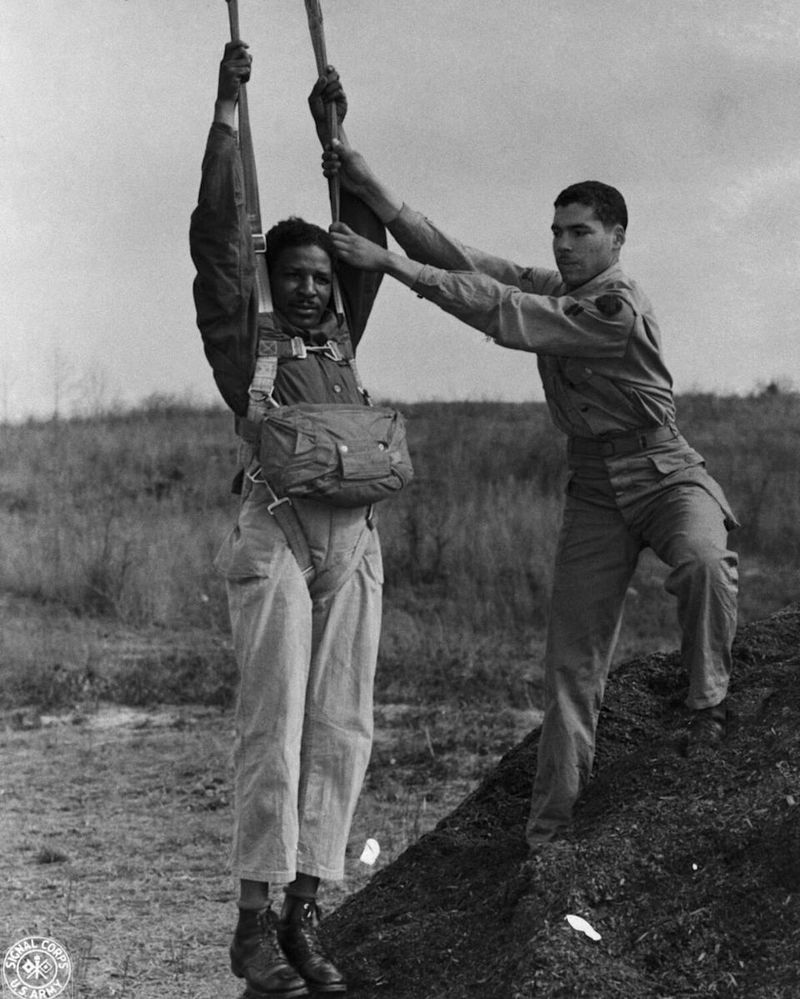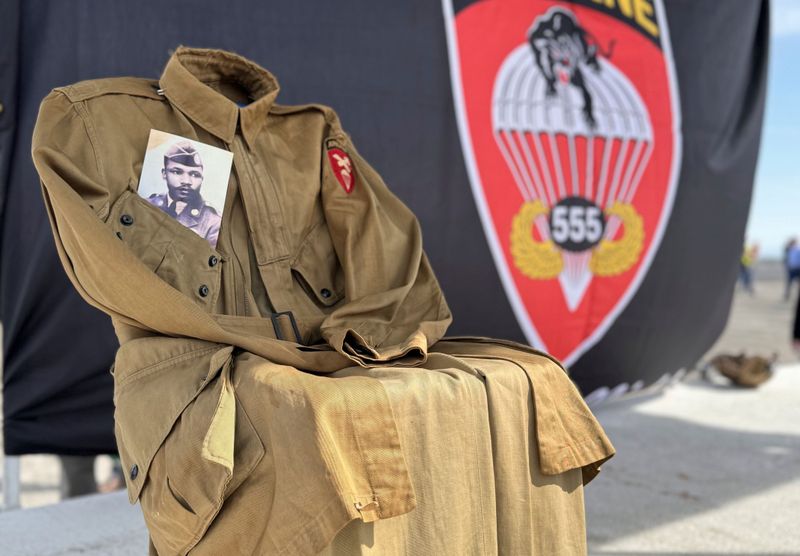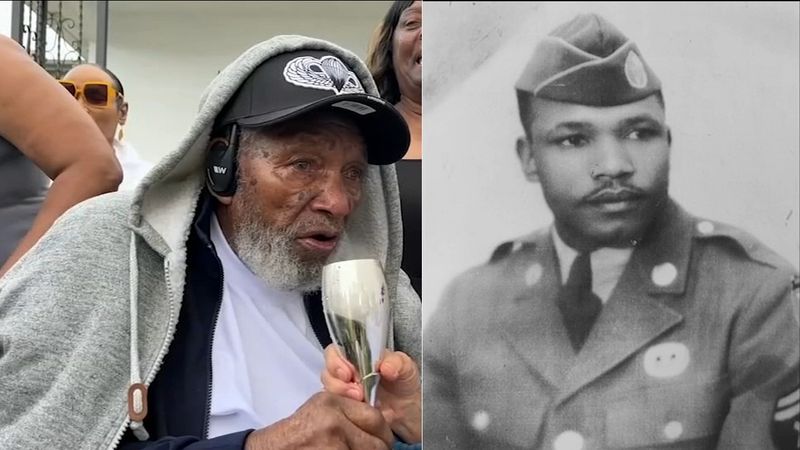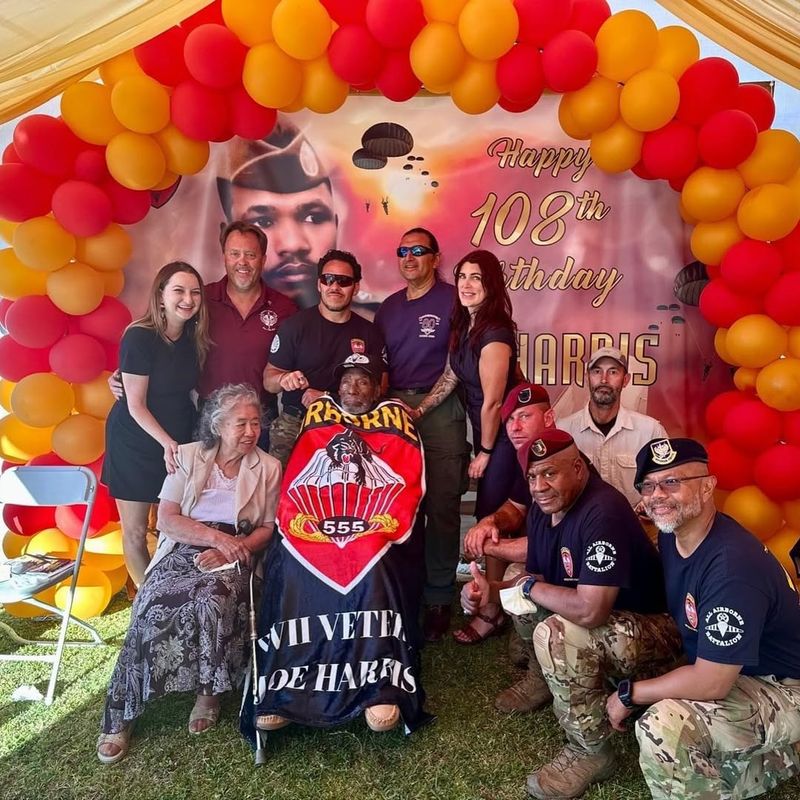Sgt. Joe Harris, a remarkable figure in military history, exemplifies courage and perseverance. Born into a world of segregation, he carved a path of honor and resilience, becoming the Army’s oldest paratrooper and a symbol of change.
His story, rich with challenges and triumphs, offers a profound glimpse into the life of a man who defied the odds and contributed immensely to the legacy of African American soldiers in the United States.
This post celebrates his enduring legacy and remarkable contributions, spanning from his early life in Louisiana to his impactful community leadership.
1. Early Life and Military Service
Born in the quaint setting of West Dale, Louisiana, Joe Harris came into the world on June 19, 1916. As a young man, he exuded a determination that would define his future. By 1941, at the age of 24, Harris enlisted in the U.S. Army.
This era was fraught with racial segregation, yet Harris stood undeterred, driven by a steadfast resolve to serve his country. His early military years set the stage for a career that would challenge the norms and pave new paths for Black soldiers.
His legacy begins here, in the heart of Louisiana.
2. Enlisted in 1941
In 1941, the world watched as Joe Harris took a bold step into military life. At 24, he joined the Army, a decision marked by determination amidst an era of segregation. The challenges were immense, yet Harris’s spirit was unyielding.
His enlistment was more than a personal milestone; it was a statement against the prevailing racial barriers. In an office filled with the tension of segregation, Harris’s resolve shone brightly.
His journey from enlistment highlighted his unwavering courage and commitment to change. This moment was the inception of his lifelong legacy.
3. Role in the 555th Parachute Infantry Battalion
Joe Harris’s military path took an inspiring turn as he joined the pioneering 555th Parachute Infantry Battalion. Known as the ‘Triple Nickles,’ this unit was among the first to train Black paratroopers.
At 30, Harris embraced this role with vigor. The battalion was unique, tasked with combatting wildfires in the Pacific Northwest during WWII. Their mission, Operation Firefly, was filled with danger and purpose.
Harris and his peers not only excelled in their duties but also shattered racial stereotypes, proving their valor and skill in unprecedented ways.
4. Operation Firefly
Operation Firefly was a groundbreaking mission that saw Joe Harris and the 555th Battalion deployed to the Pacific Northwest. At 30, Harris was tasked with the extraordinary challenge of combating wildfires ignited by Japanese balloon bombs.
This mission showcased not only their bravery but also their strategic prowess. The dense forests became their battleground, where the paratroopers’ determination was unmatched.
Their success in Operation Firefly was a testament to their skill and courage, dismantling racial biases and highlighting the essential roles they played in homeland defense.
5. Challenges and Triumphs
Life in the segregated military presented numerous challenges for Joe Harris and his fellow Black soldiers. At 35, Harris faced racial discrimination head-on. Despite systemic barriers, he and his peers were resolute in proving their capabilities.
Their stellar performance in combat and specialized missions paved the way for desegregation in the armed forces. Harris’s journey was marked by resilience and triumph, as he broke through racial prejudices, leaving an indelible mark on military history.
His story is one of perseverance and a testament to overcoming adversity.
6. Post-Military Life and Legacy
After his military tenure, Joe Harris transitioned to civilian life, leaving an enduring legacy. By age 55, he had become a respected community leader in Compton, California.
His work with the U.S. Border Patrol further exemplified his dedication to service. Harris’s influence extended beyond his career; he was a beacon of leadership and change in his community.
His life in Compton was marked by over 60 years of impactful contributions, fostering unity and progress. Harris’s post-military years were as influential as his service, enriching the lives around him.
7. Family and Recognition
Joe Harris’s legacy is vividly remembered through his family and countless recognitions. By age 90, he was surrounded by children and grandchildren who celebrated his life.
His contributions were honored through various commemorations, including a dedicated drop zone in Tuskegee, Alabama. This recognition was a testament to his profound impact and the respect he garnered over the years.
Harris’s story continues to inspire, with his family upholding his values and achievements. His life is a beacon of honor, celebrated for its service and the lasting legacy he left behind.
